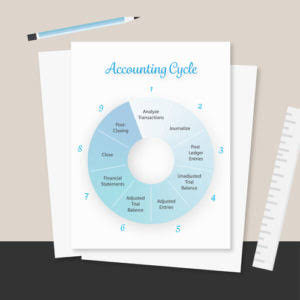
Here, we’ll assume that a company has paid for insurance coverage in advance due to the incentives offered by the provider. A recent NTIA survey of 500 nightlife business found that 40% expect to close within the coming six months unless they are provided with financial support. “These numbers show how hard businesses in late-night hospitality have worked to build back from the turmoil of COVID-19.
- We’ll explore the definition of operating costs, how to calculate operating costs, and how to distinguish them from other common business expenses.
- Because these items aren’t part of the company’s core activities and may occur infrequently, it’s helpful to separate them from the business’ results of operations.
- These expenses are typically easier to predict and budget for, as they don’t fluctuate significantly from month to month.
- Clear categorization ensures compliance with accounting standards and supports effective financial management.
- Accurately calculating operating expenses is crucial for understanding your business’s financial health and making informed decisions.
Capital Expenditure vs Operating Expenditure: Comparison Table & Examples
Capital funds are used for long-term investments (CapEx) like property or equipment purchases. Operating funds finance day-to-day operations (OpEx) such as salaries, rent, and utilities. Think of capital funds as investments in the future, while operating funds support current business activity. From an investment perspective, triple net leases offer consistent but generally cash flow lower returns. Meanwhile, gross leases offer potentially higher returns but at a higher risk since operating costs could rise and eat into your profit margins.

Balance Sheets
- In addition to insurance, businesses also need to allocate funds for regular maintenance and repairs.
- By categorizing and analyzing your operating expenses, you’ll gain valuable insights into your business’s financial health.
- Ever wondered what that means and why operating expenses are separate from other items on your income statement?
- The “Prepaid Expenses” line item is recorded in the current assets section of the balance sheet.
- Operating Expenses (OpEx) represent the indirect costs incurred by a business to continue running its day-to-day operations.
In general, property managers have greater control over the expenses above GOP versus the expenses below GOP, which are more fixed in nature and controlled by ownership. Historically, software has not had its own line item in many organization’s operating expenses. Operating expenses directly affect profitability ratios such as operating profit margin and net profit margin. Efficient management of these expenses can improve profitability and enhance a company’s financial stability.
Is income tax expense an operating expense?

These concepts affect financial decisions, tax planning, and the way companies report their expenses and investments. As the business landscape continues to evolve, staying informed about leasing trends and options is essential. By understanding the differences between finance and operating leases, businesses can make strategic decisions that align with their financial goals and operational needs. Overall, the use of EBITDA and Operating Income is a complex and evolving field that requires a deep understanding of the underlying metrics and their limitations.

But regularly reviewing and controlling these costs is crucial to ensure your business stays profitable and ready for growth. In business, an operating expense is a day-to-day expense such as sales and administration, or research & development, as opposed to production. In short, this is the money the business spends in order to turn inventory into throughput. That said, management should strive to be more efficient and maintain reasonable levels of operating costs, especially because OpEx is a significant component of the break-even point of a company. However, note that not all OpEx are fixed costs, as an item like office supplies can be viewed as more of a variable cost since more purchases would be made if production levels were higher. Investing in cost-effective technologies, improving operational efficiency, and controlling labor costs can help a business strengthen its financial position and enhance its what are operating expenses appeal to investors and lenders.
Defining Operating Expenses in Gross-Up Lease Clauses
- When it comes to evaluating the financial performance of a company, two metrics that are often used are EBITDA (Earnings Before Interest, Taxes, Depreciation, and Amortization) and Operating Income.
- These expenses help ensure your business runs smoothly and remains compliant with financial regulations.
- Capital expenditure (CapEx) is for long-term assets, benefiting the business for several years (e.g., property, equipment).
- On an income statement, “operating expenses” is the sum of a business’s operating expenses for a period of time, such as a month or year.
- This oversight mechanism enables tenants to verify the accuracy and fairness of charges allocated to them.
Operating expenses, often abbreviated as OpEx, are the costs required to run a business’s core operations. These expenses are essential for keeping the business running smoothly and generating revenue. Unlike capital expenditures (CapEx), which are long-term investments in assets, operating expenses are short-term costs that are incurred regularly. Operating expenses, commonly known as OpEx, are the costs that a business incurs through its normal operations. These expenses are essential for analyzing a company’s operational performance and efficiency.

Instead, operating expenses like SG&A remain relatively constant regardless of production volume. Maintaining consistency in how you report operating expenses from one period to another is crucial. It allows for accurate trend analysis, meaningful comparisons between periods, and enhanced credibility of financial reports. For businesses operating globally, additional tax factors may need to be addressed, such as transfer pricing rules, value-added tax or goods and services tax requirements, and https://www.bookstime.com/blog/insurance-accounting double taxation agreements. Understanding these complex issues is crucial for businesses with international operations.